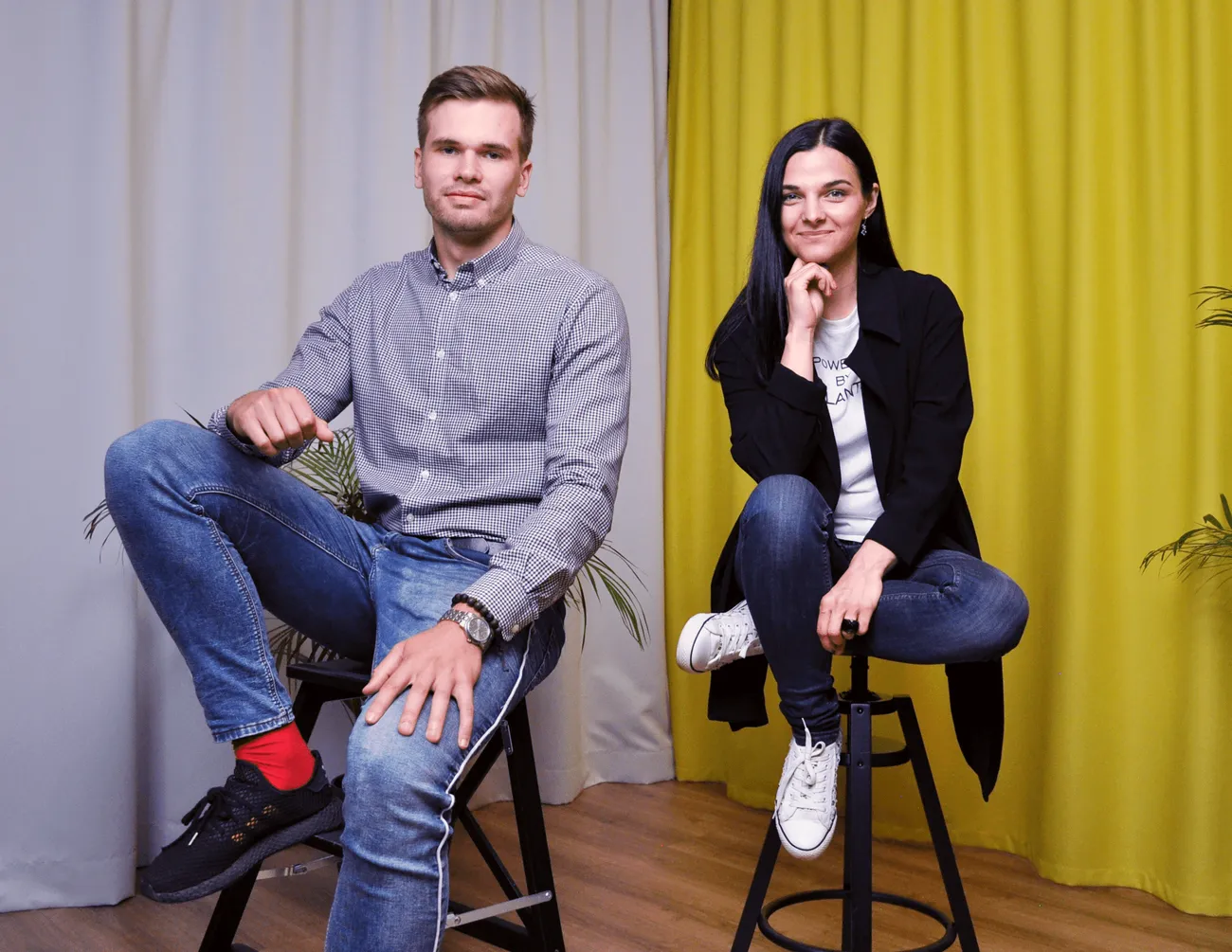
An event? Today?
Interview with project manager Rūdolfs Pētersons and b-studio manager Linda Kalniņa
This year was hard for everyone, but especially harsh it was for the entertainment industry. From live sessions online to desperate need to communicate in real life. From music concerts in the cars to the crowded Terbatas street. How it was, how it is and what else is to come?
In the context of a pandemic, most events have been cancelled. Do you feel that people are tired of this silence and want to resume more active socialization?
Linda: This year, for an unusually long time, society lived without any active and public events, so people are definitely thirsty for communication!
Rudolfs: Already during the pandemic, alternatives were sought, and one of the most popular was, for example, open-air cinema with cars.
Linda: A little later, this format of the event started to be used for organizing music concerts, but, of course, it doesn’t give the feeling of being present, but in current circumstances, it was a good temporary solution. A convincing example is also the opening of Terbatas street as a pedestrian street, where, despite the established recommendations on distance and risks, people went to be together.
What type of events are currently being organized?
Linda: At the moment, there is a greater opportunity to be one of the first to offer and implement more exclusive and meaningful ideas for event concepts - events for a narrower group of people. Online events also remain, although it must be acknowledged that their popularity is declining.
Rudolfs: There is too much choice where to participate online. People are intrigued in hot topics, they find it interesting, but the events go by and you forget that you have applied for something at all. This event type is disappearing among consumers, because no added value is given from live content, it is already an everyday thing, nothing personal.
Linda: The most important for people are these emotions gained by attending events in person. It is not possible to achieve this online. Companies have several restrictions that don’t allow them to organize the planned events as they would like, but there are options and solutions on how to implement them differently. Our agency has also quite successfully resumed organizing events, surrounded by existing restrictions, using both past experience and implementing various solutions in the organization of events, of course, observing all safety rules, but at the same time maintaining the atmosphere and content of the event.
How could corporate events change in the future and what novelties are expected next?
Rudolfs: Since it is not expected when everything will end, it is very difficult to predict. If the current situation was to end now, concerts, city festivals, etc., would take place instantly; everyone would invest in it and it would be quite saturated, there would be a short period of time when all the events would be organized, at least outside. People should make choices again. There would be fierce competition.
Linda: A lot depends on the audience. For example, there are a small number of people who watch live online in real time, but if the purpose of the event is properly communicated to the relevant audience, for example, as was the case with ‘Labestības diena’, then even in difficult times, it is possible to achieve the goal.
Rudolfs: People are and will definitely be more cautious. Innovative events which are security-oriented will certainly remain. Even now, all online application services using digital opportunities will remain and only develop, because this crisis situation has really shown that it isn’t necessary to have direct contact between people in order to settle some basic things.
BSMS organizes a lot of corporate events and events for brand consumers. What should be taken into account when organizing them in the future?
Linda: Of course, you have to follow the law regularly, you have to take into account all the rules and restrictions set by the government, because they also change from time to time. It is necessary to keep track of people’s habits and the changes of those - what is relevant and important. For example, there are people who are very cautious, but there are some who doesn’t care about these circumstances at all and then, when both parties meet, unnecessary misunderstandings can arise. It is therefore important to understand in advance who is the audience of the planned event in order to further develop the most appropriate concept for it.
Rudolfs: You have to be aware and be prepared that there is always the risk that the event may suddenly cancel, even the day before.
Linda: In order to organize some kind of public event, it is necessary to develop a precise plan for the containment of Covid-19. This is one of the factors that must be taken into account when planning the concept of the event. For example, the original concept of the CityBee event in Liepaja was canceled, but at the same time, the idea was replayed in a more attractive and engaging way.
Rudolfs: With such limitations, one can think much differently, more broadly. Ok, we have limitations, but how can we play them and move in a different direction?